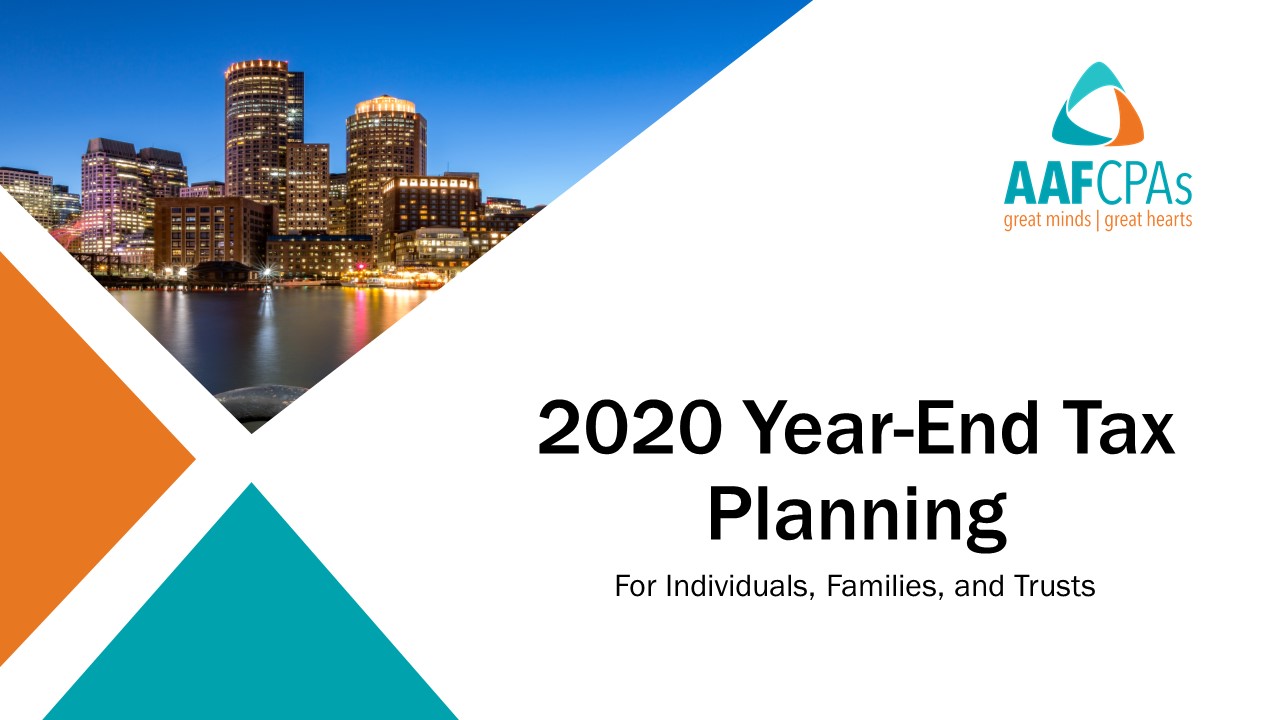Individual, Family & Fiduciary Tax
Tax Provisions and Extenders in the Consolidated Appropriations Act of 2021
AAFCPAs would like to make clients aware, on December 21, 2020, Congress passed the Consolidated Appropriations Act, 2021 (The Act), a $2.3 trillion spending bill. Among the stimulus package and other COVID-19 relief provisions, the Act contained several tax provisions and extenders. AAFCPAs has highlighted below some of the most impactful tax provisions and extenders […]
Tax Responsibilities for Gig Workers
Independent contractors and gig workers are part of a growing segment of the economy. AAFCPAs reminds clients who have turned to independent contract work this year that it is critical to understand the income tax consequences. To start, independent contractors are typically considered self-employed. As a result, and because an employer is not withholding money […]
Rolling Over Capital Gains Into a Qualified Opportunity Fund
For clients who are planning to sell a business interest, real estate, or other highly appreciated property, AAFCPAs would like to make you aware of a strategy to “roll over” capital gains into a qualified opportunity fund (QOF). What is a QOF? A QOF is an investment fund, organized as a corporation or partnership, designed […]
Is a Roth IRA Conversion Right for You This Year?
The COVID-19 pandemic has caused significant instability in the global markets and the U.S. economy. In these uncertain times, AAFCPAs reminds clients to consider measures to protect your retirement nest egg over the long term. One strategy our clients are considering is converting a traditional IRA to a Roth IRA. Traditional vs. Roth First, let […]

IRS Issues Final Regulations on 1031 Exchanges
AAFCPAs would like to make clients aware of new IRS regulations which provide guidance related to Section 1031 Like-Kind exchanges. Under the like-kind exchange rules, a taxpayer may defer a gain on a sale of property when they exchange that property for another similar property and certain requirements are met. Under the 2017 Tax Cuts […]

Watch Now: 2020 Tax Planning Webinar: Guidance for Individuals
In 2020, tax planning is more complicated than usual. It may be daunting to understand brackets and rates, where and when to retire, capital gains, and what to do with retirement plans. In this 1 hour webinar, AAFCPAs Tax & Wealth Advisors cover what taxpayers need to know for 2020 year-end, as well as year-round […]
Sunsetting Tax Exemption: $11.58M Estate Tax Exemption Could Decrease to $3M on Jan, 1, 2021
“When I first started practicing tax law in 2000, the federal estate tax exemption was $675,000,” said Josh England, LLM, Esq., AAFCPAs’ Consulting Tax Attorney. “Today that exemption is $11,580,000.” The federal estate tax exemption is the amount you may give away during your lifetime and own at your death without subjecting it to a […]
AAFCPAs Releases 2020-2021 Tax Planning Guide for Businesses & Individuals
In 2020, tax planning is more complicated than usual. We now have a full view of the impact of United States’ massive 2017 Tax Cuts and Jobs Act (TCJA) and the 2019 Further Consolidated Appropriations Act on clients’ short and longer-term tax planning strategies. We must now evaluate these Acts in tandem with the $2.2 […]
Multi-State Worker Tax Considerations
AAFCPAs would like to make clients aware that Congress has introduced a bill under H.R. 7968 that would limit a state’s ability to tax nonresident telecommuters. The general rule is that an employee pays income taxes to the state where wages are earned, which can be different than the state where the employee lives. This […]
